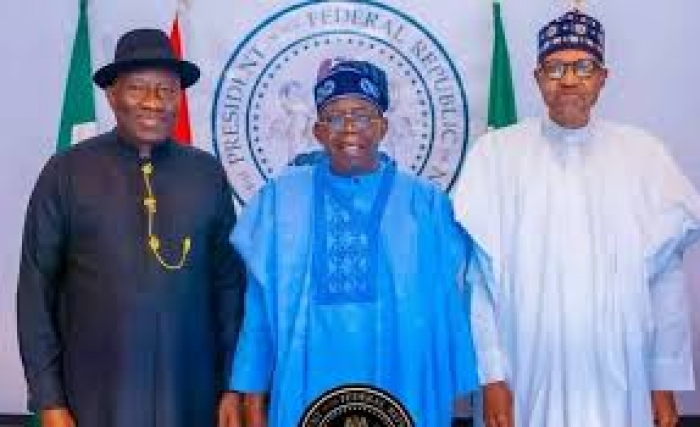Nigeria's GDP figures from 2010 to 2027 reveal striking contrasts in economic performance across three presidential administrations. This analysis examines the economic trends, contributing factors, and implications for Africa's most populous nation.
The Jonathan Era (2010-2014): Robust Growth
President Goodluck Jonathan's administration oversaw a period of remarkable economic expansion, with GDP growing by 53.97% over five years. Starting at $374.10 billion in 2010, the economy reached $576.00 billion by 2014, representing consistent year-on-year growth.
Key drivers:
- Oil boom: High global oil prices (averaging over $100/barrel for much of this period) significantly benefited Nigeria as a major oil producer
- Agricultural reforms: The Agricultural Transformation Agenda boosted domestic food production
- Relative political stability: Creating a conducive environment for business and investment
- Financial sector reforms: Following the 2009 banking crisis, strengthened the financial system.
The Buhari Years (2015-2023): Economic Contraction and Stagnation
President Muhammadu Buhari's administration experienced a cumulative GDP decline of 3.61% over eight years. The economy contracted sharply from $494.31 billion in 2015 to $405.02 billion in 2016, never regaining the peak levels seen during Jonathan's tenure.
Key challenges:
- Oil price crash: Global oil prices plummeted in 2014-2015, severely impacting government revenue
- Foreign exchange crisis: Currency management policies led to multiple exchange rates and dollar shortages
- Security concerns: Boko Haram insurgency and other conflicts disrupted economic activities
- COVID-19 pandemic: Further contracted the economy in 2020 by 1.8%
- Policy uncertainty: Delayed cabinet formation and policy inconsistencies affected investor confidence
Despite modest recovery toward the end of Buhari's tenure, with GDP reaching $476.47 billion in 2022, the economy remained below 2014 levels.
The Tinubu Trajectory (2023-2027): Severe Contraction
President Bola Tinubu's administration has witnessed (and is projected to continue seeing) the most dramatic economic contraction, with a projected 41.78% decline from 2023 to 2027, according to IMF figures.
Notable factors:
- Currency devaluation: The naira lost significant value against major currencies
- Subsidy removal: Elimination of fuel subsidies shocked the economy
- Foreign exchange reforms: Unification of exchange rates caused significant adjustment pains
- Inflation spike: Reaching multi-decade highs, eroding purchasing power
- Investment caution: Both domestic and foreign investors adopting wait-and-see approaches
Comparative Analysis and Implications
1. Stark contrasts: The three administrations present remarkably different economic trajectories - robust growth under Jonathan, stagnation under Buhari, and severe contraction under Tinubu.
2. External vs. internal factors: While external factors like oil prices significantly influenced all three periods, policy choices amplified or mitigated these effects.
3. GDP in dollar terms vs. real growth: These figures reflect both economic performance and currency valuation. The sharp decline during Tinubu's administration partly reflects naira devaluation rather than solely reduced economic activity.
4. Recovery prospects: IMF projections suggest modest growth will begin in 2025-2027, but GDP in dollar terms will remain far below historical peaks.
5. Per capita implications: With Nigeria's rapidly growing population, the GDP contractions translate to even steeper declines in per capita terms, affecting living standards.
Looking Forward
The Nigerian economy faces significant challenges requiring structural reforms. The country's ability to diversify beyond oil, address security concerns, manage inflation, and create an enabling business environment will determine whether it can return to sustained growth.
The projections suggest Nigeria will need to implement significant policy changes to reverse the current trajectory and return to the growth levels seen in the early 2010s.

































































